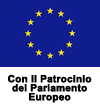VERSO UNA DIRETTIVA DELL’UE SULLA TUTELA PENALE DELL'AMBIENTE
Autore: Dott.ssa Laura De Rose, Vice Direttore Foroeuropa
Nella sua ultima relazione sull'attuazione della strategia dell'Unione per la sicurezza dell'UE, la Commissione europea ("Commissione") sottolinea che -secondo Interpol e il Programma delle Nazioni Unite per l'ambiente-, la criminalità ambientale è la quarta più grande attività criminale al mondo dopo il traffico di droga, tratta di esseri umani e contraffazione.
Le proposte della Commissione per una nuova direttiva sulla criminalità ambientale, un nuovo regolamento sul trasporto dei rifiuti, e un nuovo regolamento sulla deforestazione sono attualmente in fase di negoziazione. Queste nuove proposte mirano a rafforzare l’azione di contrasto e prevedono sanzioni più elevate e strumenti investigativi adeguati.
Questa nota per ForoEuropa presenta gli elementi chiave della citata nuova direttiva sulla criminalità ambientale, che ha recentemente compiuto progressi significativi nel processo legislativo, poiché il Consiglio ha concordato il suo mandato per i negoziati con il Parlamento europeo il 9 dicembre.
La proposta scaturisce dalla valutazione della legislazione attualmente in vigore, vale a dire la direttiva sulla tutela penale dell'ambiente adottata nel 2008. A seguito di tale valutazione, la Commissione ha concluso che l'effetto della direttiva è limitato, visto l’esiguo numero di casi indagati con successo e conclusi con una condanna. Inoltre, i livelli di sanzione imposti sono troppo bassi per essere dissuasivi e la cooperazione transfrontaliera non avviene in modo sistematico.
ForoEuropa seguirà gli sviluppi legislativi relativi alla nuova direttiva e ne informerà i lettori.
Maggiori dettagli sul contenuto della proposta sono forniti nella versione inglese di questo articolo, che segue.
____________________
Proposed new (EU) Directive on the protection of the environment through criminal law
In its latest Report[1] on the implementation of the EU Security Union Strategy, the European Commission (the ‘Commission’) underlines that -according to Interpol and the United Nations Environment Programme-environmental crime is the fourth largest criminal activity in the world after drug trafficking, human trafficking and counterfeiting.
According to recent EU statistics, available on: https://www.consilium.europa.eu/en/infographics/eu-fight-environmental-crime-2018-2021/, environmental crime grows at a rate of 5%-7% per year and generates $ 110-281 billion of losses every year. Related offences include: improper collection, transport, recovery or disposal of waste; illegal emission or discharge of substances into the atmosphere; water or soilkilling; destruction or possession of, or trade in protected wild animal or plant species; illegal trade in ozone-depleting substances.The routes for trafficking in waste, timber and wildlife birds are from Africa, Asia and Latin America to Europe (EU as destination).
Ambitious Commission proposals for a new environmental crime directive, a new waste shipment regulation and a new regulation on deforestation are currently under negotiation. Those new proposals aim to strengthen the enforcement chain and provide for higher sanctions and proper investigative tools. They are also complemented by a revised Action Plan against wildlife trafficking.
This note for ForoEuropa provides an overview of the key elements of the referred new environmental crime directive[2], which recently made significant progress in the legislative process, as the Council agreed on its mandate for negotiations with the European Parliament on 9 December.
The proposal stems from the evaluation of the legislation currently in force, namely the directive on the protection of the environment through criminal law adopted in 2008. Following such evaluation, the Commission concluded that the effect of the directive had been limited as the number of cases successfully investigated and resulting in a sentence remained low. Moreover, the sanction levels imposed were too low to be dissuasive and cross-border cooperation was not taking place systematically.
Against this backdrop, the proposal aims to improve the investigation and prosecution of environmental crime offences, and defines environmental crime more precisely, also adding new types of environmental criminal offences. It also harmonises the level of penalties for natural persons and, for the first time, for legal persons as well.
Instead of the nine offences that currently exist under EU criminal law, the proposal -as recently approved by the Council- defines 20 offences, broadening and clarifying the scope of conduct that is prohibited because it harms the environment.
In particular, for the purpose of this Directive, the ‘unlawful’ conduct shall mean a conduct infringing one of the following: (a) Union law which aims to pursue one of the objectives of the Union's policy on the environment as set out in Article 191(1) TFEU[3]; or (b) a law, an administrative regulation of a Member State or a decision taken by a competent authority of a Member State that gives effect to the Union law referred to in point (a).
Offences and criminal penalties
The new offences include timber trafficking, which is a major cause of deforestation in some parts of the world, the illegal recycling of polluting components of ships and serious breaches of legislation on chemicals.
Some criminal offences in this Directive include a qualitative threshold requiring that the conduct causes death or serious injury to any person or substantial damage to air, water or soil quality, or to animals or plants. Since such damage may result in harm to biodiversity and ecosystem services the qualitative threshold should be understood in a wide sense including, where relevant, substantial damage to fauna and flora, habitats and services provided by natural resources.
In the case of natural persons, the text sets out the following penalties:
- for intentional offences causing death to any person, a maximum prison term of at least ten years;
- for offences committed with at least serious negligence causing death to any person, a maximum prison term of at least five years; and
- for other intentional offences included in the legislation, a maximum prison term of either at least five years or at least three years.
In the case of legal persons, the text sets out the following penalties:
- for the most serious offences, a maximum fine of at least 5% of the legal person’s total worldwide turnover, or alternatively €40 million;
- for all other offences, a maximum fine of at least 3% of the legal person’s total worldwide turnover, or alternatively €24 million.
Reinstating the environment
As provided under the current 2008 directive, the new legislative proposal foresees that additional sanctions, or measures, should be available in the proceedings. Such sanctions or measures may include the obligation to reinstate the environment, within a given period and provided that the damage is reversible. Where the damage is irreversible, the text foresees the obligation to compensate costs linked to the damage to the environment The new directive, however, will not require that a judicial authority, if entitled to impose this obligation according to national law, should also be responsible for monitoring the execution of this obligation. Additionally, the publication of the decision imposing the sanctions or measures should be applied in accordance with the right to privacy and without prejudice to the national rules governing the anonymization of court decisions or the duration of publication.
The related obligation is foreseen under Articles 5 and 7 and of the new directive, pertaining to the penalties for natural and legal persons. Those Articles provide that Member States shall take the necessary measures to ensure the concerned natural or legal persons may be subject to additional criminal or non-criminal sanctions or measures which may include the obligation to reinstate the environment within a given time period, provided that the damage is reversible, or, where the damage is irreversible, the obligation to compensate costs linked to the damage to the environment.
Outside of the criminal law realm, the Commission put forward an ambitious proposal for a nature restoration law in June 2022, the first continent-wide, comprehensive law of its kind. This new proposal is a key element of the EU Biodiversity Strategy, which calls for binding targets to restore degraded ecosystems, in particular those with the most potential to capture and store carbon and to prevent and reduce the impact of natural disasters.The proposal combines an overarching restoration objective for the long-term recovery of nature in the EU’s land and sea areas with binding restoration targets for specific habitats and species. These measures should cover at least 20% of the EU’s land and sea areas by 2030, and ultimately all ecosystems in need of restoration by 2050.
The proposal is available here: https://environment.ec.europa.eu/publications/nature-restoration-law_en. It is currently being discussed within both the European Parliament and the Council (https://www.europarl.europa.eu/legislative-train/theme-a-european-green-deal/file-restoration-of-healthy-ecosystems).
Other aspect of the new directive
Further, the text covers the need to provide training for those working to detect, investigate and prosecute environmental crime and to allocate adequate resources. It also includes provisions on support and assistance to persons reporting environmental crime, environmental defenders and persons affected by these crimes.
The proposed new directive also strengthens Member States’ obligation to establish national strategies on combating environmental criminal offences and to take the necessary implementing measures without delay.
[1] Communication from the Commission to the European Parliament and the Council, COM(2022) 745 final, 13 December 2022.
[2] The reference document for this article is the text adopted by the Council on 9 December (Council Document 15006/22).
[3] According to Article 191(1) of the TFEU, Union policy on the environment shall contribute to pursuit of the following objectives: preserving, protecting and improving the quality of the environment; protecting human health; prudent and rational utilisation of natural resources; and promoting measures at international level to deal with regional or worldwide environmental problems, and in particular combating climate change.


